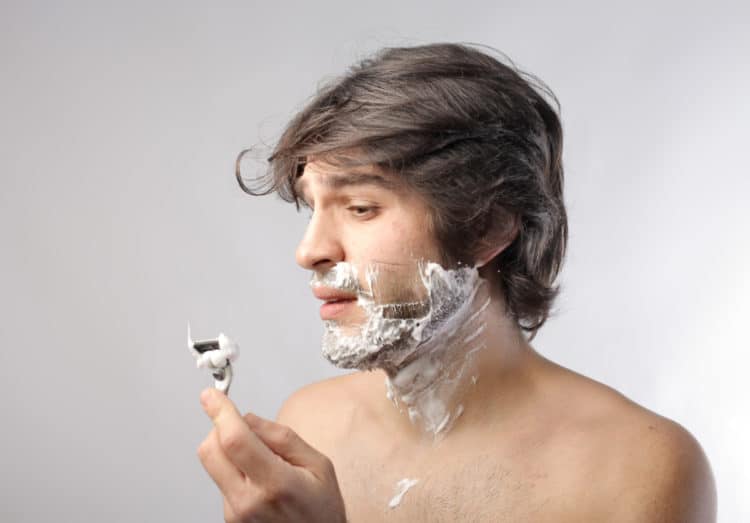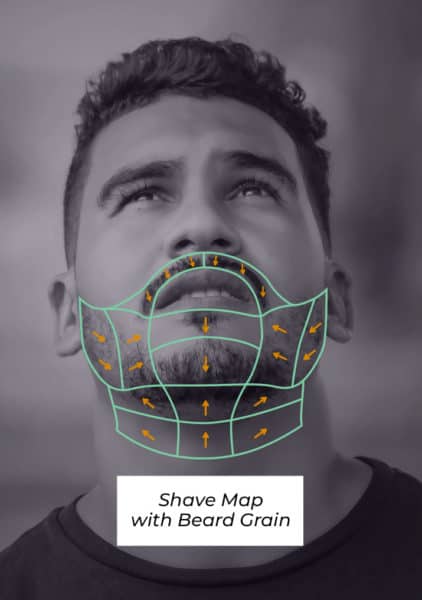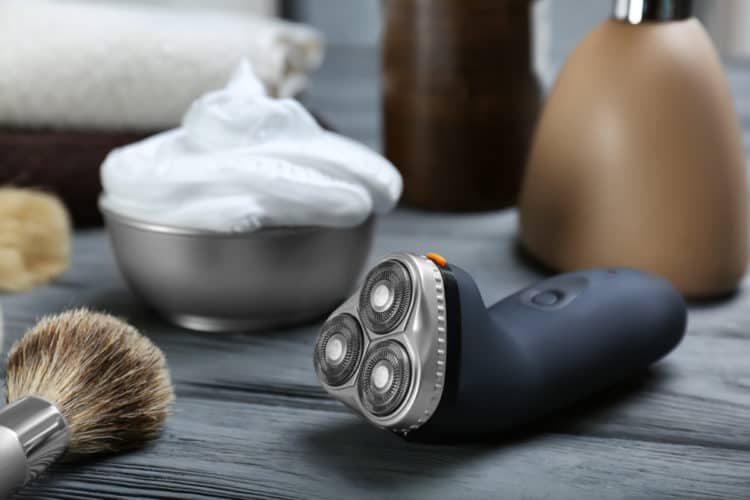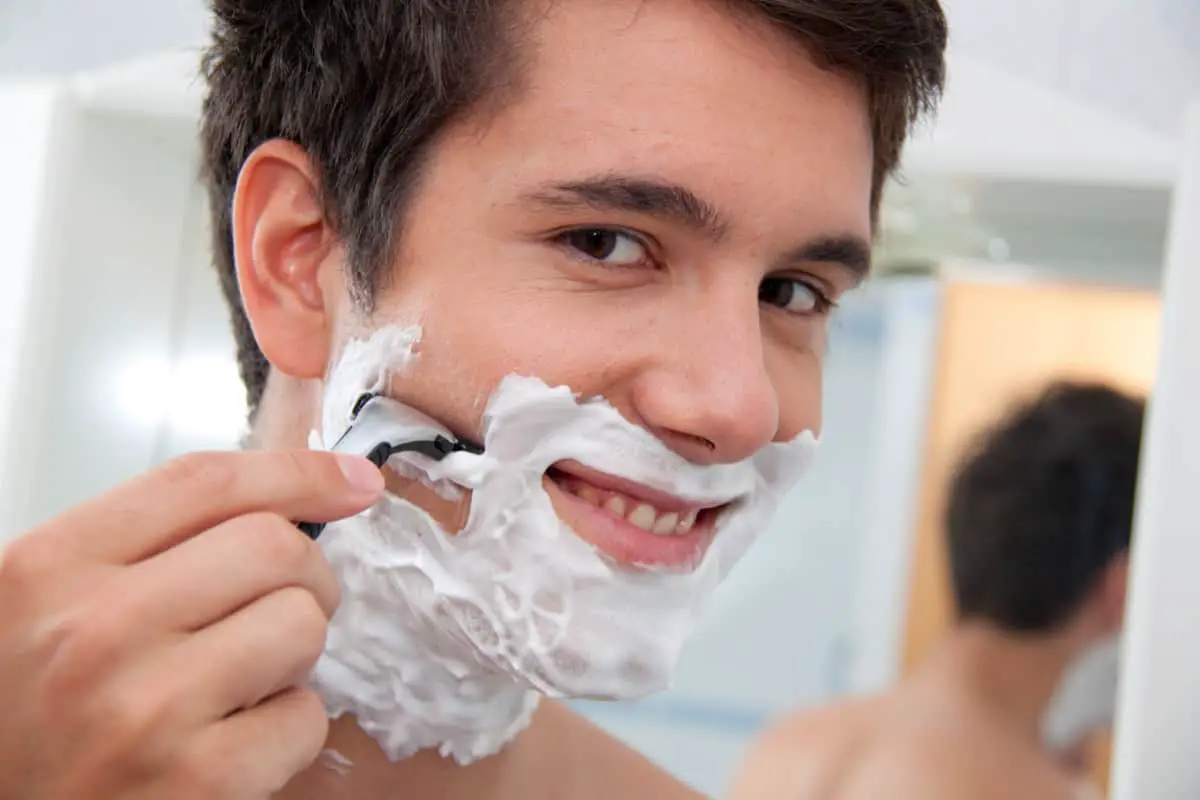It’s time to boost your shaving game. A wet shave is the best way to get a close shave with water and shaving cream. Most wet shavers use a double edge safety razor, shaving soap, or shaving cream to get a rich lather.
A traditional wet shave refers to the process of shaving with “wet” shaving soap or shaving cream, using the lather to soak into your skin so your blade glides easily along your skin.
When you decide to wet shave, you’re also joining a tradition dating back to the early days of barbershops and men who wanted to get the closest shave possible. I’ll show you how to set up your routine and how to use wet shaving techniques to get the smoothest results.
Wet Shaving Guide
Wet shaving offers some major benefits to guys who like the closest shave and value the traditional shaving experience with a safety razor and shaving brush. The quality of the shave is above and beyond a traditional cartridge razor or electric razor, as well.
In fact, wet shaving will likely open your eyes to a whole new experience that’s close to straight razor shaving. However, it’s much easier than going that far.
Wet shaving also refers to using a safety razor or a straight razor. There are also electric wet/dry shavers that work with shaving creams as well.
For my purposes, I use a safety razor for wet shaving because it’s easier to control and provides that sharp blade for an extra-smooth finish.
You can see my top picks for safety razors to pick out the best one for your wet shaving routine.

What is Wet Shaving?
Wet shaving is like the name implies and simply means shaving with water. With the classic wet shave, you’ll lather your face by applying shaving cream or shaving soap with a boar hair shaving brush for the best coverage.
Benefits of Wet Shaving
- Closer shave than most other razors, except maybe a straight razor
- Exfoliates your skin
- Leaves your skin smelling great
- Prevents ingrown hairs and razor burn when done right, since safety razor blades are much sharper
Wet Shave vs Dry Shave
Although the shaven results may appear similar, wet shaving and dry shaving are quite different. For wet shavers, using water and shaving cream will soften the hair while the blade glides tight against the skin’s surface for the closest shave.
Where the dry shave rides further from the skin but offers better protection for those with sensitive skin.
How to Wet Shave (Step-by-Step)
There are various techniques to wet shaving, but I want to show you the easiest way to get a close shave with the safety razor method or a wet shaver. You’ll need a few things to get the perfect shaving experience.
What You’ll Need for Wet Shaving:
- Double edge safety razor
- Wet/dry shaver (see recommendations below)
- Shaving soap or shaving cream
- Shaving brush
- Aftershave balm (post-shave balm)
- Bowl
It also helps to have a hand towel nearby so you can keep your space nice and clean, while also wiping away excess shaving lather.
1. Know the Way Your Beard Grows
Mapping the grain of your beard is the first step to really understanding wet shaving. Since the blades are so sharp, you don’t want to shave against your beard grain, as it will lead to nicks, cuts, razor burn, and acne.
Take a moment to study your beard and feel how your hair is growing. If you run your fingers over your beard hair, you should notice when your hair bends in the opposite direction.
Still not sure?
Here’s a shaving map that typically shows the way the hair grows on your neck, upper lip, jawline, and cheeks. The arrows show you which direction to shave.

2. Prepare Your Shaving Station
Before shaving, it’s best to take a hot shower, then prepare your double edge razor or electric shaver (wet/dry setting).
Shaving goes pretty quickly once you get into the routine, but the one thing you must do is check your safety razor for dull blades before shaving. Most razor blades must be replaced after the third or fourth shave.
It’s best to start wet shaving right after you get out of the shower and have pre-soaked your skin, ensuring that your beard hair is softened and ready for shaving. Pre-shave oils can also help with this.
In addition, you’ll want to prep your shaving bowl, fill it with hot water and soak your shaving brush for at least 60 seconds before lathering up. This softens up the bristles and makes it easier to create that rich, thick lather you’ll need, whether you’re using shaving soap or cream.
3. Lather Up Your Shaving Brush
Once your shaving brush has finished soaking, shake off the excess water. Now, load your brush with shaving soap or shaving cream. It’ll take a moment to lather up with shaving soap, but once you get a good amount on your brush, go ahead and apply it to your face wherever you plan to shave.

It’s best to use shaving soap with a shaving bowl, adding moisture in slowly until you get the rich lather that you want. You can flick or shake water drops into the shaving soap until you find the desired thickness.
4. Start Shaving with Your Safety Razor or Wet Shaver
Before your first attempt, you’ll want to place the safety razor blade directly and flatly on your face, with the handle perpendicularly facing your palm.
Lower the razor handle down and pull the razor with it gently. If you feel your hair cutting smoothly, then you’ve found the right angle and will avoid any nicks or cuts.
Electric wet shavers typically have wet/dry settings that allow you to shave in the shower or over the bathroom sink. These are typically rotary or foil shavers that allow you to get a closer shave, but they may not be as smooth as a safety razor.
Remember to follow the shaving map and go slowly if it’s your first time. Follow your beard grain and gradually remove beard hair, applying very little pressure and letting the weight of the safety razor guide your hand.
5. Get a Smoother Shave
Your first pass should remove most of your beard hair, but if you still have stubble, you’ll likely need a second pass. Don’t forget to re-apply with shaving cream.
If you still need another pass, be careful, as this is when you’ll likely irritate your skin and get razor burn. It’s best to only use a third pass when you have stubborn stubble.
Tips for the Perfect Wet Shave
- Rinse your face with warm water once you’re finished shaving
- Now follow up with a cold water rinse to seal in your pores
- Pat your face dry with a clean towel
- Always match your skin type to the shaving cream or soap and use sensitive shaving cream if you’re prone to breakouts
- Apply a post-shave balm to soothe your skin and prevent razor burn
- Let your aftershave air dry to avoid any irritation
Best Wet Shave Products
There are some of the products that enhance your wet shave for perfectly smooth results.
Wet Shave Kit
Wet Shave Soaps
Wet Shaving Cream
Wet Shaver
No products found.







